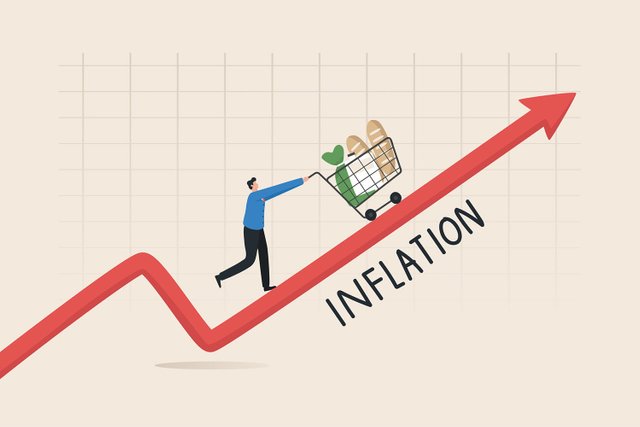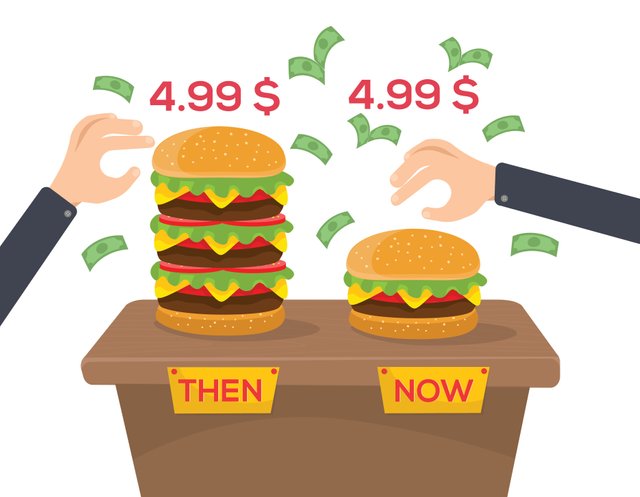The effect of higher inflation on the Global Economy
Inflation can happen in many ways and people have different interpretations of it. For example, according to some, if people's income is more than the production, then inflation occurs. Some people said, inflation is an abnormal increase in purchasing power. According to some, inflation is a situation where too much money chases too few goods and inflation is a condition in which the value of money gradually decreases i.e. the price of goods increases gradually.
In the past decade, inflation has been relatively low in most developed economies. However, there are signs that inflation is picking up and could rise to levels not seen since the financial crisis of 2008. It will discuss the current state of inflation, the effects of higher inflation on the global economy, the causes of higher inflation, and the solutions to higher inflation. The current state of inflation has been rising in recent years, and this has had a number of effects on the global economy. One major effect is that it has led to an increase in the cost of living, as prices for goods and services have gone up. This has been a major burden for many people, especially those on fixed incomes. In addition, inflation has also made it more difficult for businesses to plan and budget, as they have to account for rising costs. This can lead to less investment and economic growth. Additionally, higher inflation can also lead to higher interest rates, which can further impact economic activity.
Inflation has a variety of effects on the global economy. Most notably, it erodes the purchasing power of consumers and businesses, which can lead to decreased economic activity. Additionally, inflation can make it difficult for countries to trade with one another, as different nations will have different inflation rates. This can lead to disruptions in the global supply chain and higher prices for imported goods. Finally, inflation can simply be a nuisance for citizens, as they have to constantly adjust their budget to account for rising prices. The Causes Of Higher Inflation There are many factors that can lead to higher inflation. One is an increase in the money supply. When there is more money chasing fewer goods, prices go up. Another cause of inflation is demand-pull inflation. This happens when people expect prices to keep going up, so they buy things now even if they don't really need them. This pushes prices even higher. Cost-push inflation can also lead to higher inflation. This happens when the costs of raw materials or energy increase.
The solutions to higher inflation are either to increase interest rates or to reduce the money supply. Increasing interest rates would make it more expensive for people to borrow money, and this would reduce the amount of money in circulation. This would lead to less spending and eventually lower prices. Reducing the money supply would have a similar effect, but it would be more difficult to implement and could have other unintended consequences. Conclusion In conclusion, it is clear that higher inflation has a number of effects on the global economy. These include both positive and negative impacts. On the one hand, higher inflation can lead to increased economic growth. On the other hand, it can also lead to higher interest rates and a decline in the value of the currency. Higher inflation can therefore have both positive and negative effects on the global economy.


it is kind of interesting how inflation affects different people for most people it makes life difficult
Upvoted! Thank you for supporting witness @jswit.
@tipu curate 3
Upvoted 👌 (Mana: 2/5) Get profit votes with @tipU :)
Dear @team007
Another yet interesting choice of topic :)
Covid, war, lockdowns, sanctions and money printing ... so many things happened in last few years. I often wonder what will be consequences of all those things 2-3 years from now.
And regardless how we will describe inflation - it is something that affect all poor and middle-class people in very similar way.
It's also worto to mentiond, that in short term increasing interest rates does result in even higher inflation. It causes cost of morgage/rentals/loans to be higher. So obviously this extra cost will be passed on "final consumer".
Am I making sense?
There are also other solutions:
But goverments do not seem to like any of those 2 solutions :/
Have a great sunday ahead of you
Cheers, Piotr
Dear
@crypto.piotr
Thanks for your comments. Your analysis is wonderful and mentioned some points which is really important. The causes of Inflation mainly two types: Demand-pull inflation and Cost-push inflation. I think that now many country are facing cost-push inflation due to high price for fuel and the supply of goods and services disruption.